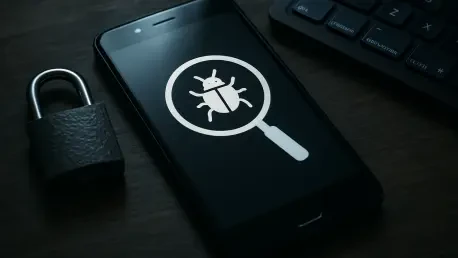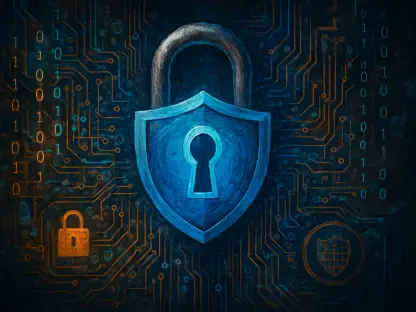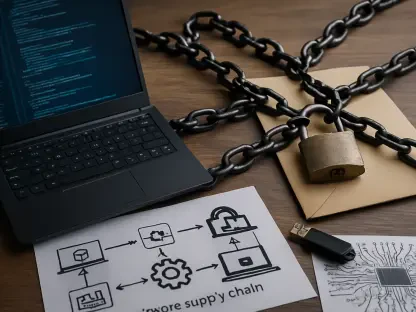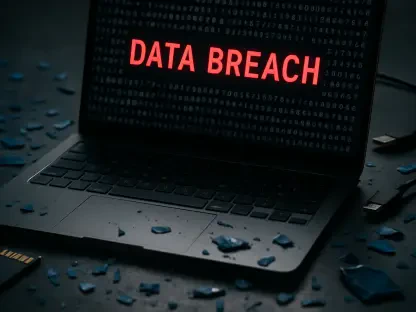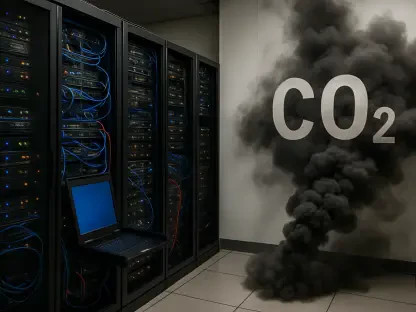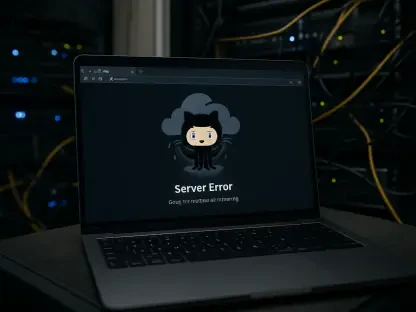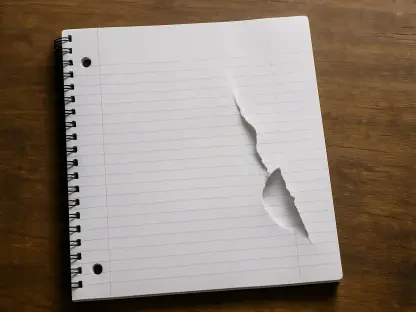In a courtroom drama unfolding at the Lagos State Special Offences Court in Ikeja, the high-profile fraud trial of Godwin Emefiele, former Governor of the Central Bank of Nigeria, has hit a significant roadblock, captivating the attention of legal experts and the public alike with its intricate details. Charged with an alleged $4.5 billion fraud, Emefiele’s case has become a focal point for discussions on corruption, digital evidence, and judicial fairness. The crux of the delay centers on a contentious dispute over forensic access to a mobile phone containing critical WhatsApp messages, which the prosecution claims are key to proving financial misconduct. This standoff between the Economic and Financial Crimes Commission (EFCC) and the defense teams raises broader questions about transparency and the handling of digital exhibits in modern legal proceedings. As the trial grinds to a halt over these technical and procedural issues, the balance between ensuring a fair process and protecting evidence integrity hangs in the balance.
Unraveling the Core Dispute
Forensic Access Challenges
The heart of the delay in this monumental trial lies in a fierce disagreement over the forensic analysis of an iPhone holding WhatsApp chats presented as evidence by the EFCC against Emefiele and his co-defendant, Henry Omoile. Emefiele’s legal team, led by Senior Advocate of Nigeria (SAN) Olalekan Ojo, has accused the prosecution of obstructing a court-ordered joint examination of the device. Despite a scheduled analysis, the EFCC allegedly restricted full access to the phone and its contents, even when an Apple expert requested direct interaction with the device. This limitation has fueled defense claims of deliberate hindrance, prompting calls for a new court order to ensure unfettered access. The defense argues that verifying the authenticity of these messages is crucial to their strategy, as the chats purportedly detail transactions central to the fraud allegations. Without transparent access, they contend, the foundation of the prosecution’s case remains untested, casting doubt on the fairness of the proceedings.
Beyond the issue of access, the defense has expressed deep concerns over the integrity of the forensic process itself, highlighting potential risks to the evidence’s credibility. Counsel for Omoile, Adeyinka Kotoye (SAN), has joined in emphasizing the pivotal role of these digital records, urging the court to halt further testimony until the analysis is properly conducted. The defense’s stance underscores a critical point: in an era where digital evidence often forms the backbone of complex cases, procedural missteps or perceived obstruction can undermine trust in the judicial system. The insistence on a thorough and unbiased examination reflects a broader need for clear guidelines on handling such evidence, especially in high-stakes corruption trials where public scrutiny is intense. As this dispute drags on, it reveals the intricate challenges of aligning technological demands with legal standards, leaving the court to navigate uncharted territory.
Prosecution’s Counterarguments
On the other side of the courtroom, the prosecution, led by Rotimi Oyedepo (SAN), has firmly rejected accusations of misconduct, instead pointing fingers at the defense’s forensic approach as inadequate and potentially compromising. Oyedepo has criticized the defense expert’s lack of a verifiable physical laboratory, raising alarms about the reliability of an analysis partially conducted online, which could jeopardize data integrity. The prosecution warns that granting the defense’s request for unrestricted access might lead to tampering, as the iPhone’s data could auto-sync and alter its contents if not properly safeguarded. To mitigate this risk, the device has been kept in airplane mode, a precaution the EFCC insists demonstrates their commitment to transparency while adhering to strict forensic protocols. This position highlights their priority to protect the evidence, which they argue is essential to proving the alleged financial misconduct.
Furthermore, the prosecution’s concerns extend to the broader implications of mishandling digital exhibits in such a significant case, where billions of dollars are at stake. Oyedepo has stressed that any deviation from established protocols could not only affect the current trial but also set a dangerous precedent for future cases involving electronic evidence. The EFCC maintains that their actions are guided by a dedication to justice, not obstruction, and they remain open to a joint analysis under controlled conditions. This stance reveals a fundamental tension: while the defense seeks maximum access to challenge the evidence, the prosecution prioritizes safeguarding it against potential manipulation. The clash of these perspectives has created a deadlock, with Justice Rahman Oshodi now tasked with finding a path forward that balances both sides’ legitimate concerns without further delaying the pursuit of accountability.
Judicial Responses and Broader Implications
Court Directives to Break the Stalemate
Amid the escalating tensions over forensic access, Justice Rahman Oshodi has taken decisive steps to prevent the trial from stalling indefinitely, issuing orders aimed at maintaining momentum while addressing procedural fairness. The court mandated the prosecution to submit its forensic report within a tight 24-hour window, ensuring that critical information is not withheld. Additionally, an EFCC witness from Abuja was permitted to continue testifying, a move intended to keep the case progressing despite the unresolved dispute. Justice Oshodi also introduced electronic service for court documents to streamline communication and avoid further delays. During the hearings, testimony from EFCC operative Alvan Gurumnaan linked Emefiele and associates to cash deliveries through WhatsApp communications, supported by exhibits of digital records and statements from banking staff, underscoring the weight of the disputed evidence.
Equally important is the court’s recognition of the broader stakes involved in resolving this forensic impasse, as the outcome could influence how digital evidence is handled in future trials. The judge’s directives reflect a careful balancing act between the defense’s demand for transparency and the prosecution’s insistence on protocol, aiming to uphold the integrity of the judicial process. The introduction of exhibits, including WhatsApp records tied to large foreign currency transactions, further illustrates why the phone data is so contentious. As the case has been adjourned for continuation, the court’s role as a mediator remains pivotal. Justice Oshodi’s actions signal an intent to navigate the technical complexities of digital evidence while ensuring that neither side’s rights are compromised, setting a potential benchmark for handling similar disputes in corruption cases across the region.
Wider Context of Digital Evidence in Legal Battles
The trial’s broader context reveals serious allegations against Emefiele, who faces 19 counts of gratification, corrupt practices, and abuse of office, while Omoile is charged with three counts related to unlawful gifts, both pleading not guilty. This case exemplifies the growing reliance on digital evidence in prosecuting high-profile corruption, where WhatsApp messages and other electronic records often serve as critical proof of illicit dealings. However, the current deadlock over forensic access highlights a persistent challenge: ensuring data integrity while providing equitable access to all parties. The divergent views between the prosecution and defense reflect a lack of trust, with each side questioning the other’s motives and methods. This situation mirrors a global trend in legal systems grappling with the complexities of technology in courtrooms, where outdated frameworks often struggle to keep pace with digital advancements.
Moreover, the significance of this trial extends beyond the courtroom, shedding light on systemic issues in addressing corruption through modern evidence. The disputed WhatsApp chats are not merely technical details but the linchpin of allegations involving massive sums, making their proper handling a matter of public interest. As legal proceedings involving digital components become more common, the need for standardized protocols grows urgent. The outcome of this forensic dispute could influence policies on evidence management, potentially shaping how justice systems adapt to technological realities. Reflecting on the proceedings, it’s evident that the resolution of such technical disagreements in past cases often paved the way for stronger guidelines, offering a glimmer of hope that this trial’s challenges might contribute to future improvements in judicial fairness and efficiency.
